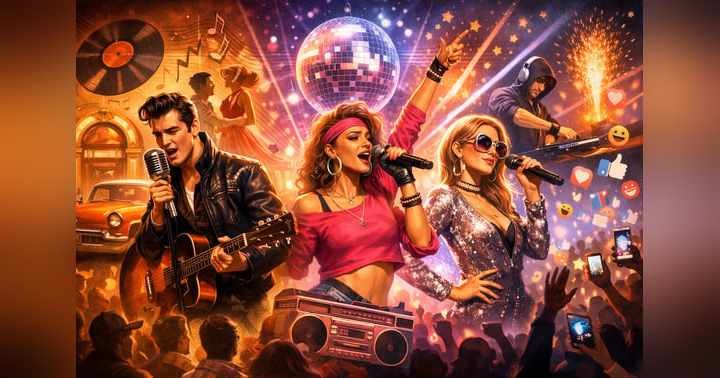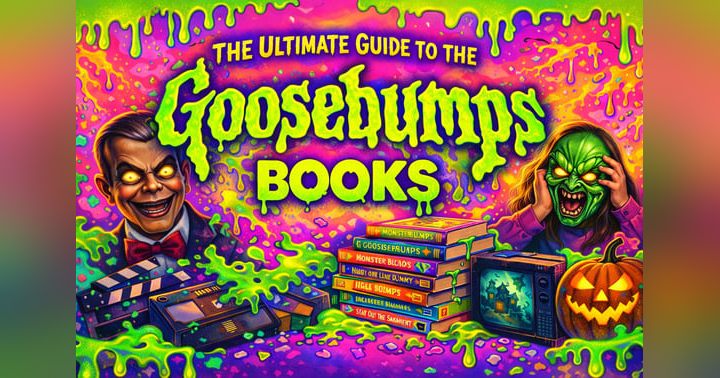The Best and Worst Video Game Adaptations: A Deep Dive
Welcome to a journey through the unpredictable world of video game adaptations! From the pixelated nightmares of early attempts to the modern triumphs that capture the essence of their source material, we're diving deep into what makes a video game adaptation soar or stumble. In this post, we'll explore iconic missteps like the 'Super Mario Bros.' movie, celebrate successes like 'The Last of Us,' and dissect the key ingredients that separate a critical hit from a complete flop. Join us as we unpack the fascinating history and ongoing evolution of bringing your favorite video game worlds to life on the big (and small) screen. And be sure to check out our latest podcast episode, Dave Franco & Alison Brie (Together); Anthony Mackie & the cast of Twisted Metal, where we delve even deeper into this topic with Benny Panella, plus get exclusive insights from the cast of 'Twisted Metal' and Dave Franco & Alison Brie!
Why Video Game Adaptations?
Video games have become a dominant force in modern entertainment. With intricate narratives, compelling characters, and immersive worlds, it's no surprise that Hollywood has been eager to tap into this rich source material. The appeal of adapting a video game is multifaceted. First, there’s the built-in fanbase - a ready-made audience familiar with the characters and lore, eager to see their favorite games brought to life. Second, video games often offer incredibly detailed and expansive universes, providing a wealth of story possibilities that can be explored in film or television. Finally, the interactive nature of gaming allows for unique and engaging narratives that can translate into compelling cinematic experiences.
However, the history of video game adaptations is littered with cautionary tales. Translating the interactive experience of a game into a passive medium like film presents significant challenges. What works in a game - player agency, non-linear storytelling, complex mechanics - might not translate well to the screen. Furthermore, balancing the needs of existing fans with the desire to attract a broader audience can be a delicate act. Get it wrong, and you risk alienating both groups.
The Good, the Bad, and the Pixelated: A Look at Adaptations
The landscape of video game adaptations is a diverse one, ranging from critical darlings to box office bombs. It’s a journey marked by ambitious failures, surprising successes, and a constant evolution in understanding what it takes to do justice to the source material. This section will take a broad look at the spectrum of adaptations, setting the stage for a more detailed exploration of specific examples.
Early attempts at adaptation often fell into the trap of prioritizing spectacle over substance. Special effects were considered more important than character development or faithful storytelling. The results were often movies that, while visually impressive at times, failed to capture the heart of the game. As the industry matured, filmmakers began to recognize the importance of understanding the source material and respecting the established lore. This shift has led to more nuanced and successful adaptations, although the road is still paved with potential pitfalls.
Cult Classic Weirdness: 'Super Mario Bros.' (1993)
Ah, 'Super Mario Bros.' (1993) – a film so bizarre and detached from its source material that it has achieved a kind of legendary status. Instead of the bright, colorful world of the Mushroom Kingdom, we're plunged into a dystopian cityscape where the Goombas are evolved dinosaur-like creatures, and King Koopa is a ruthless corporate tyrant. Bob Hoskins and John Leguizamo do their best as Mario and Luigi, but they are ultimately overwhelmed by a script that bears little resemblance to the beloved video game. The film's strangeness is perhaps its most enduring quality. It's a fascinating example of how an adaptation can go completely off the rails, yet still find an audience fascinated by its sheer audacity. While it failed to capture the spirit of the game, 'Super Mario Bros.' (1993) has become a cult classic for its unique, albeit misguided, vision.
Modern Successes: 'The Last of Us' and 'Sonic the Hedgehog'
In contrast to the earlier missteps, recent adaptations like HBO's 'The Last of Us' and the 'Sonic the Hedgehog' movies demonstrate a deeper understanding of the source material and a willingness to prioritize character and story. 'The Last of Us' has been particularly praised for its faithful adaptation of the game's narrative, its strong performances, and its willingness to explore the emotional complexities of its characters. The show has not only satisfied fans of the game but has also drawn in a wider audience unfamiliar with the source material.
Similarly, the 'Sonic the Hedgehog' movies have found success by embracing the character's inherent charm and creating a fun, family-friendly adventure. After a rocky start with the initial design of Sonic, the filmmakers listened to fan feedback and made significant changes, resulting in a much more well-received and successful film. These adaptations demonstrate the importance of respecting the source material while also making adjustments to fit the medium of film or television.
What Makes a Video Game Adaptation Work?
So, what are the key ingredients that contribute to a successful video game adaptation? Several factors come into play:
- Respect for the Source Material: Understanding and appreciating the original game's story, characters, and world is crucial. This doesn't mean a slavish devotion to every detail, but rather capturing the essence of what makes the game special.
- Strong Writing and Directing: A well-written script and competent direction are essential for any successful adaptation. The story needs to be engaging, the characters believable, and the pacing appropriate for the medium.
- Casting: Choosing the right actors to portray the iconic characters is critical. The actors need to embody the spirit of the characters and bring them to life in a convincing way.
- Understanding the Differences Between Mediums: Video games are interactive, while films are passive. A successful adaptation needs to account for these differences and make adjustments accordingly. This might involve streamlining the story, focusing on character development, or adding new elements that enhance the cinematic experience.
- Embracing the Spirit of the Game: Adaptations should aim to capture the feeling and atmosphere of the game, even if they deviate from the plot. This can be achieved through visual style, music, sound design, and even the overall tone of the film or show.
When Adaptations Go Wrong: 'Doom,' 'Assassin's Creed,' and 'Hitman'
Despite the successes, there are still plenty of examples of video game adaptations that miss the mark. 'Doom,' 'Assassin's Creed,' and 'Hitman' are prime examples of films that failed to capture the magic of their source material. 'Doom' (2005) devolved into a generic action movie with little connection to the atmospheric horror of the game. 'Assassin's Creed' (2016), despite having a talented cast and visually striking action sequences, suffered from a convoluted plot and a lack of character development. The 'Hitman' films, while having some entertaining moments, never truly captured the strategic depth and stealth gameplay of the games.
These failures often stem from a misunderstanding of what makes the games appealing. Focusing too much on action and spectacle while neglecting the story, characters, and atmosphere can result in a film that feels generic and uninspired. Additionally, trying to cram too much lore into a single movie can overwhelm the audience and detract from the overall experience.
Horror Games That Actually Worked: 'Silent Hill,' 'Resident Evil,' and 'Five Nights at Freddy’s'
The horror genre has seen some relatively successful video game adaptations. 'Silent Hill' (2006) captured the unsettling atmosphere and psychological horror of the games, even if it diverged from the plot in some ways. The 'Resident Evil' film franchise, while not always faithful to the games, has managed to deliver entertaining action-horror experiences. Most recently, 'Five Nights at Freddy's' delivered on its promise to bring a favorite to life on the big screen for fans to enjoy. These adaptations demonstrate that horror games can be successfully translated to film, provided that the filmmakers understand the key elements that make the games scary and suspenseful.
The success of these adaptations often lies in their ability to create a sense of dread and unease. Using visual and auditory cues to build tension, focusing on character vulnerability, and exploring psychological themes can all contribute to a successful horror adaptation. Also, for long running franchises like Resident Evil, it helps to have several films for the production crew to 'get it right' as they continue to evolve the product over time.
Dream Adaptations: Why 'Red Dead Redemption' Deserves a Prestige TV Show
Looking ahead, there are many video games that would make excellent adaptations. 'Red Dead Redemption,' with its epic story, compelling characters, and immersive open world, is a prime candidate for a prestige television series. A 'Red Dead Redemption' series could explore the themes of redemption, loyalty, and the fading of the Wild West in a way that a movie simply couldn't. The show could delve into the backstories of the characters, explore the political and social context of the time, and deliver a truly unforgettable viewing experience.
The episodic format of a television series would allow for a more nuanced and detailed exploration of the game's world and characters. It would also provide an opportunity to introduce new storylines and characters that expand upon the existing lore. With the right creative team, a 'Red Dead Redemption' series could be a landmark achievement in video game adaptations.
Twisted Metal Season 2: Exclusive Cast Interviews and a Deep Dive
As you may know if you listened to the companion episode that accompanies this post, we got the chance to sit down with Anthony Mackie and the cast of 'Twisted Metal' Season 2 to discuss the mayhem and madness of bringing this beloved vehicular combat game to life. From the insane stunts to the quirky characters, 'Twisted Metal' embraces the absurdity of its source material and delivers a wild, action-packed ride. You can hear more about what it takes to adapt a game like 'Twisted Metal' for television with these exclusive interviews by clicking on the podcast link at the top of this post.
Dave Franco & Alison Brie on 'Together': Making Horror as a Couple
Also on the podcast, we had the pleasure of speaking with Dave Franco and Alison Brie about their new horror film, 'Together'. They discussed the challenges and rewards of working together on a project that explores the dark side of relationships. As real-life partners, Dave and Alison bring a unique perspective to the film, adding depth and authenticity to the characters. They talked codependency, prosthetics, toilet logistics, and cuddling red flags. It’s a lot. In the best way.
The Future of Video Game Adaptations
The world of video game adaptations is constantly evolving. As filmmakers and showrunners become more familiar with the source material and more attuned to the needs of both fans and general audiences, we can expect to see even more successful adaptations in the future. By respecting the original games, focusing on strong storytelling, and embracing the unique challenges of the medium, we can unlock the full potential of video game adaptations and bring these beloved worlds to life in new and exciting ways.
The journey from pixelated screens to cinematic universes is an ongoing one, filled with both triumphs and tribulations. But with each new adaptation, we learn more about what works and what doesn't, paving the way for a future where video game adaptations are not just a novelty, but a respected and celebrated part of the entertainment landscape. Be sure to listen to our full discussion, including our interviews with the cast of 'Twisted Metal' and Dave Franco & Alison Brie, on the this episode of the podcast!












